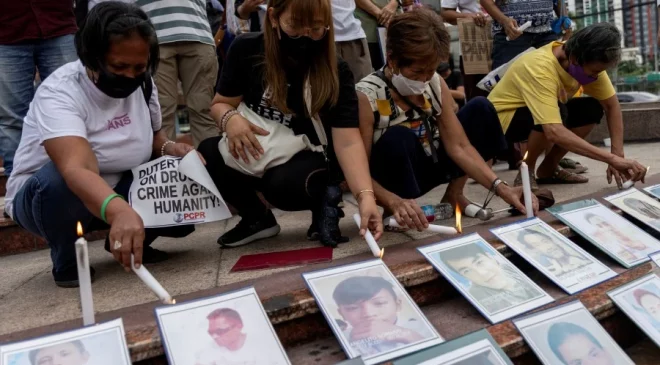
July 17 marks the Day of International Criminal Justice, commemorating 25 years since the adoption of the Rome Statute, the founding treaty of the International Criminal Court (ICC). On this occasion, ICC member countries convene at the United Nations headquarters in New York City to discuss reinforcing political and practical support for justice, encompassing both the ICC and national courts as crucial components of the international justice system.
A year ago, Human Rights Watch, along with other human rights groups, urged governments worldwide to eliminate the double standards that hinder victims’ access to justice for serious international crimes. Five key steps were outlined to strengthen the international justice system and extend its reach, regardless of where the crimes occur or who commits them. Political calculations have often influenced victims’ access to justice, leading to disparities in treatment by leading actors. Eradicating these double standards is a critical challenge, aligning with the principle of “no one above the law.”
Reviewing the progress made over the past year, it is evident that while there have been advancements, persistent challenges remain.
The ICC has expanded its reach with resumed investigations in Afghanistan, the Philippines, and Venezuela, moving beyond its prior concentration on African cases. However, delivering equal justice requires consistent political support, impartial commitment, and sufficient financial resources across all accountability efforts, which still prove to be arduous tasks.
Notably, a landmark Darfur case progressed at the ICC, yet renewed armed conflict in Sudan following inaction from the international community on outstanding arrest warrants underscores the danger of impunity fueling new abuses. However, arrest warrants across the ICC’s work remain outstanding, as it depends on countries to apprehend suspects.
Global attention to accountability in Ukraine has brought about important innovations to support national proceedings. ICC arrest warrants, including one for Russian President Vladimir Putin, have been issued, but the level of vocal support for ICC investigations in Ukraine contrasts sharply with muted support for its work in other situations, such as Palestine. Insufficient funding for the ICC risks selective approaches to cases and situations, a concern recognized by ICC countries led by the Africa group.
Erasing double standards necessitates increasing the number of countries joining the ICC. While Ukraine has received considerable attention for accountability, little pressure has been exerted by ICC member countries to encourage Ukraine to join the court—an essential recommendation by Ukrainian civil society organizations.
Additionally, equal access to justice depends on national courts fulfilling their responsibilities. Some progress has been witnessed, such as trials in Guinea and the Central African Republic. National courts can also apply “universal jurisdiction” to crimes committed abroad, with an increase in cases and a new treaty promoting cooperation. However, challenges persist, as countries like the US have yet to address abuses committed by their personnel in the “global war on terror.”
Supporting human rights defenders and protecting evidence of international crimes are vital long-term strategies. Non-traditional pathways, like the International Court of Justice’s role in addressing state responsibility, are gaining attention. Efforts to address ongoing historical legacies of slavery and colonialism are also critical for equity in access to justice.
While erasing double standards in access to justice will not happen overnight, continuous progress is attainable with the concerted efforts of the international community. The call to action remains steadfast: governments must take concrete measures to ensure equal access to justice for all victims, regardless of where they suffer, every day.
